Is Sustainable Tourism Possible? An Interview
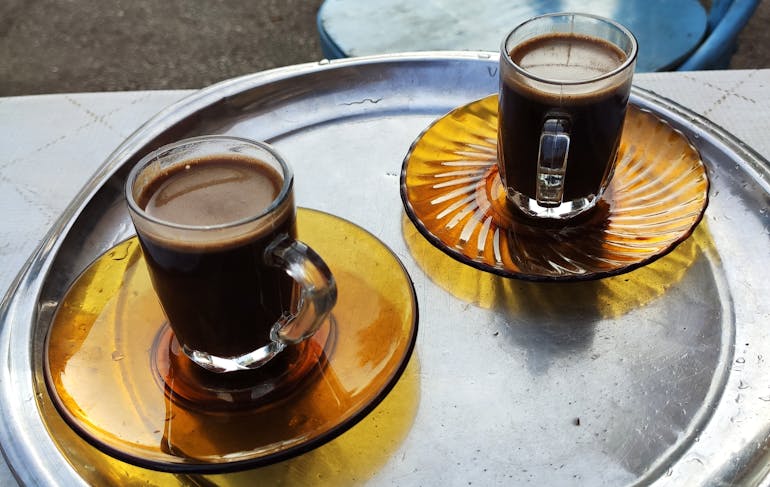
25
Jan
Is Sustainable Tourism Possible? An Interview
Is sustainable tourism really possible? Or is it merely a flighty concept we name-drop to assuage our conscience after flying halfway around the world for a vacation?
If you’re not quite sure what sustainable tourism is all about, check out our blog post, Sustainable Travel 101.
But, if you’re familiar with sustainable tourism and are still skeptical, we invite you to read this interview with Nick Fontana — a self-described millennial cynic, possessing sharp wit, a keenly analytical mind, and a penchant for storytelling — for a few reasons:
- Sustainable tourism is a complicated topic! We know this and we want our readers and travelers to acknowledge this too.
- We hear cynics’ concerns frequently, and we think that many people will relate to the points made by Nick. They’re valid, and they’re worth discussing.
- It’s healthy to have a balanced perspective so we can approach this subject with critical thinking, open minds, and an awareness that fosters thoughtful innovation.
There’s a lot to cover in this interview, so let’s get started!
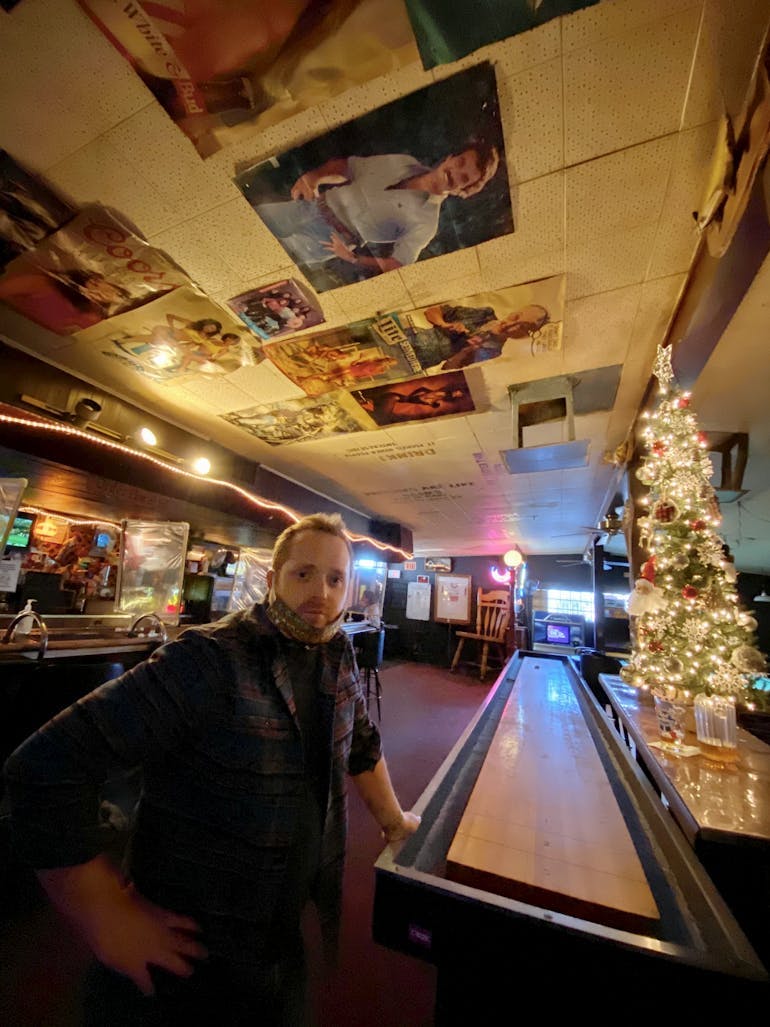
Yugen Earthside: Had you ever thought of sustainable tourism before recently?
Nick: In fact, no.
Sustainability has always seemed like something you do when you’re in “real life”, i.e., not on vacation. I think most of us treat vacation as a time to “turn off” and “live a little”, meaning normal prerogatives in life take a back seat. Don’t bother me now with the news, I don’t want to hear about the civil war in Lebanon, I’m not particular about the moves of the stock market, and God forbid, if somebody tells me one more thing about the impending doom of our planet I’ll rip their forking* skull out and suck their eye sockets like the dozen oysters I’ve just consumed… because I’m on vacation. Sustainable thinking doesn’t happen without the whole “thinking” part, something many of us try to avoid when on our coveted holidays.
*Word modified by editor.
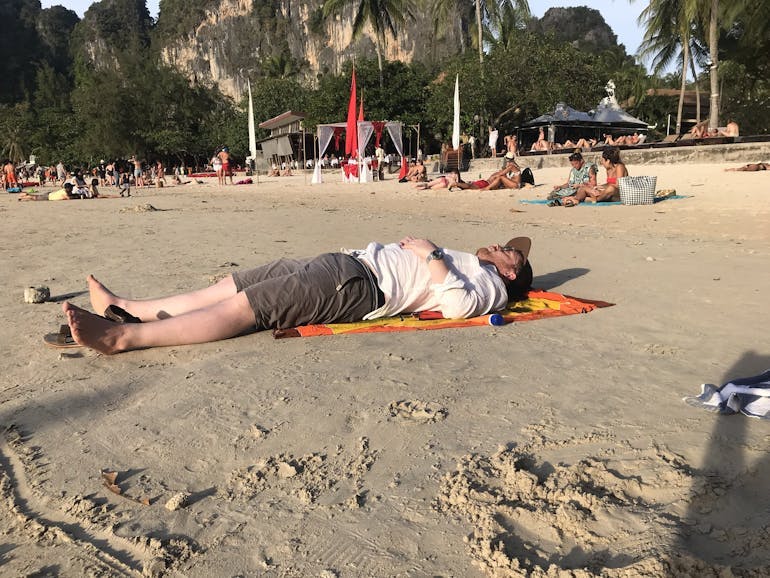
YE: As somebody who hasn’t thought of sustainable tourism before, what does it mean to you?
Nick: Probably not what you want to hear, but it’s an oxymoron. Tourism isn’t sustainable. Simply put, if everyone had the privilege of taking a few weeks off a year to travel the way most of us do, what would the end result be?
I suppose it depends on how you define “sustainable.” Is it about the environment? The local population? What is the time frame?
To me, sustainable tourism is probably best defined as a method of tourism which all humans could embark upon without having any noticeable effects on the local economies, the overall culture of the place, the environment, etc.
It’s not just an ecological issue, it is a socioeconomic issue as well. Travel-savvy folks want to avoid touristy spots… but is it not the touristy spots that give life to the locals? So what is it that you are looking for when you seek ‘sustainable tourism?’
YE: Speaking of “the touristy spots” – what are your thoughts on the problem of overtourism?
Nick: This is complicated.
What is the definition of “overtourism?” Here is mine, but by no means is it based on anything remotely academic.
Overtourism is a situation in which the general economy and culture of a place has been defined and shaped and sculpted to fit the needs of those who don’t live there, those who visit in fleeting amounts, often once, for their holidays.
On one hand, tourism can be seen as a litmus test for good times, especially in developing or conflicted countries. Tourism in many of these places represent the livelihood of the locals living there. I’m sure that overtourism would be a welcome thing in a number of places, at least to the people who live there.
On the other hand, the interesting thing is that most of the customers, the tourists, wouldn’t like it as much.
It’s a bit hypocritical I’d argue. We don’t want to see “us”, i.e. other tourists, in the new places we’re going, because we want a moment to observe “them”, i.e. locals, for as they really are, devoid of “us”.
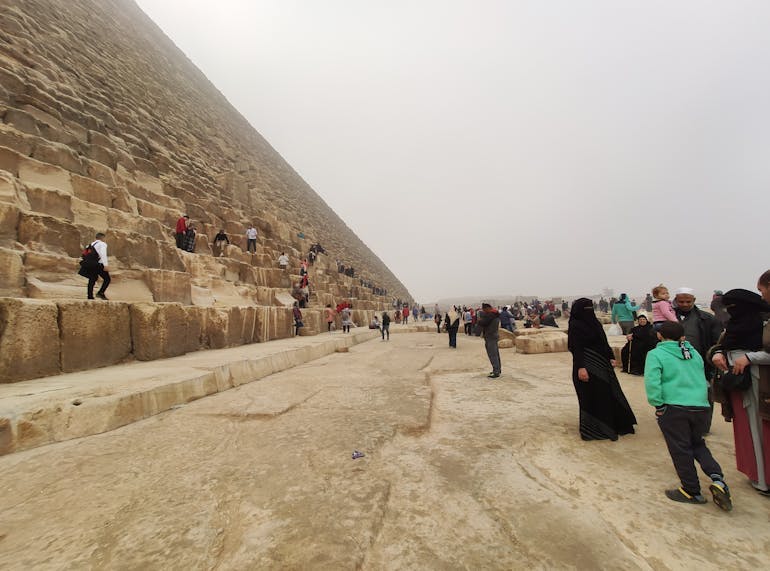
YE: OK, but for those who are seeking authentic, local experiences, what do you suggest?
Nick: First off, I’m not sure all of us really want truly “local” or “authentic” experiences. The blunt truth is that for many of us, we want a sampling at best, before retreating back to our air-conditioned rooms. I’d be skeptical if someone told me they wanted to spend their vacation living like a Thai street vendor for a couple of weeks, or a sugar cane farmer in Luxor. Hell, maybe it would be a nice change of pace from the 9-5 grind.
YE: There’s still something to be said for authentic experiences though. How can people pursue those without destroying the qualities that make a place unique?
Nick: To answer the question more directly: combine local realities with tourist comfort.
For example, in many parts of the world, this is pretty easy to do. Get a bit of a local flair that is still comfy enough to be considered a vacation. Small-group food, restaurant, and market tours? Historic sightseeing walking tours ending with a nice apéro at a café? Back to the Airbnb or hotel in time for a midday nap. Wham bam thank you ma’am.
Other places? Maybe not so easy. The truth is that “authentic” experiences are oftentimes unsettling — situations such as finding yourself among beggars or hustlers, trying to keep a casual expression on your face while they desperately persist to get a few extra bucks out of you. You’re on edge, you stop trusting people, you feel like a target, stared at, and you become the goldmine that everybody is lusting for. You are Hollywood, and you feel disgusting.
YE: So what’s the solution – for everybody to just not travel?
Nick: Don’t get me wrong, I certainly don’t want to scare anyone off from traveling. It’s just a consideration one has to make before blindly jumping into the authenticity pool.
To the second point regarding preserving the uniqueness of an experience, when you do “discover” a truly unique place, can you really eschew the internet? Stop telling your friends? Resist the urge to spew to the world that you found an unknown and incredible local spot? Maybe you can, but most can’t. Your exposure to the very thing you covet leads to the ruin of what made it coveted in the eyes of the authenticity-seeker.
Maybe “off the beaten path” and “unique” experiences come from having less of a plan in the first place. Maybe it’s personal. It’s being willing to take a risk, set out, and not check Yelp or TripAdvisor before going to that restaurant. Isn’t that what travel is supposed to be about anyway? Trying something unknown? If you read over a hundred Yelp reviews, is it even really unknown at that point? You may as well get takeout and watch “Chef’s Table” for the thousandth time.
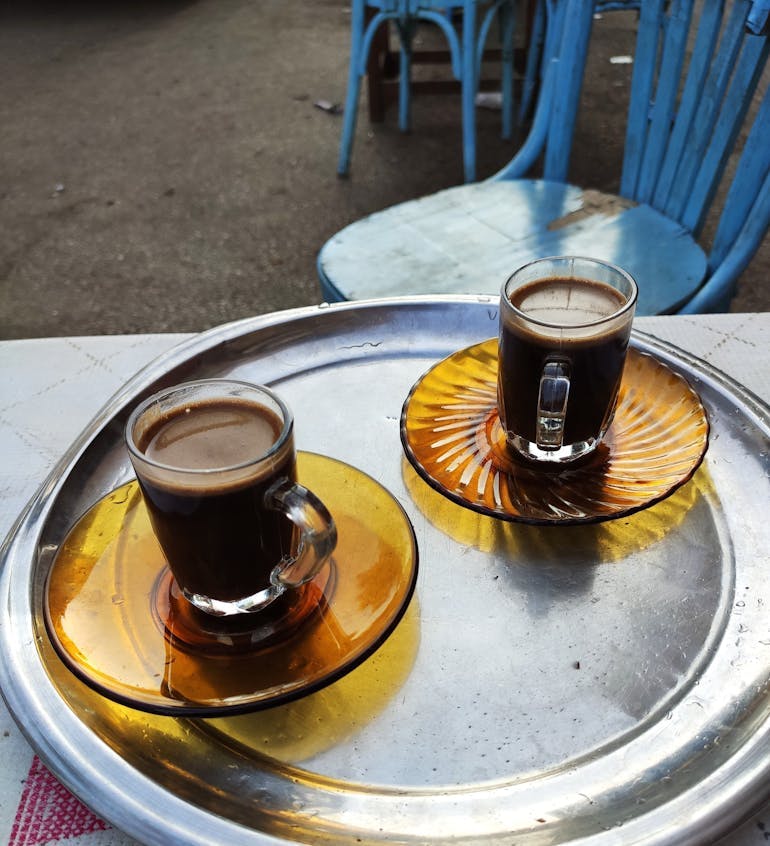
YE: This leads us to ‘hidden gems’. How can these magical places be shared such that they don’t become overexposed? Or should they be shared?
Nick: Probably not. But, it is a balance.
Most of the hidden gems would be much happier if they were overexposed. It’s a privilege of the travelers to think that this should be a secret. I say, let the secret get out. If you really give a fork about these people, ask them if they want more customers from outside of the country. If so, then go for it. Otherwise, you’re just being an elitist, keeping it all for yourself (and all the others who have enough money/time to travel).
But it is also the hubris of the “discoverer.” “I found this place. It’s a secret. It’s unknown. Only the locals like it. They hate tourists.”
Are you sure they hate tourists? And are you sure tourists would ruin it? And if they do, is it not a reflection of the establishment rather than the tourists themselves? Locals are trying to run their businesses! More customers are better. I’m not sure local establishments care where their customers come from. You can be romantic and say, “Oh yes they only care about the truth of ingredients and the sun and the sky and cows and whatever the fork”, but at the end of the day, they gotta count the money. Don’t think they wouldn’t sell out too. We all would if given the temptation.
On the other hand, local customers might care. If their favorite spot suddenly has a line and prices are jacked up to “tourist” levels, how might that affect them? Again, it’s tricky. What’s good for the business isn’t always good for the locals, even though the business is run by locals. Generally, if a large component of what makes a thing desirable is that it’s unknown by others, or that it is exclusive, by nature that thing is going to be more at risk of falling into obscurity. Tip the scale in the other way, and suddenly you’re in line and reminiscing on the good ol’ days when you could just walk in no reservations style.
YE: Is sustainable tourism even a topic even worth talking about? Why or why not?
Nick: Yes. A resounding yes. But perhaps not from the standpoint of “authenticity”, and more from the standpoint of “how do I do this in the least intrusive way?” Like with camping, you “pack it in, pack it out”. You “leave no trace”.
YE: So how do we make tourism like that? Not leaving a trace?
Nick: The only way I would imagine is that the local economy doesn’t rely on tourism. Unfortunately, many of the great places in the world we want to visit have an economy based on that very thing.
Sustainable tourism is not about finding “local” eateries. It’s not about finding “authentic” experiences.
Sustainable tourism starts with the tourist. It starts with thinking about your actions and how they affect the planet. That is first and foremost.
Secondarily, you need to think about what “authentic” means. Does booking a private wine tour in the ash glazed hills of a previously erupted volcano really mean you’re being “down to earth?”
I would say no. It means you are exercising your own privilege in the world to feel better about yourself (and dare I say it, gain credit on Instagram).
But then again, maybe you’re helping some small local farmer out.
The truth is, being sustainable while traveling is a tricky business.
YE: Can trying to be a model sustainable tourist be a detriment to the actual experience and benefits of traveling?
Nick: Depends on what you want out of travel.
If you travel outside of the developed world, you will realize how unsustainable everything really is. When you travel, you realize how forked things are; that’s what depresses me the most about travel.
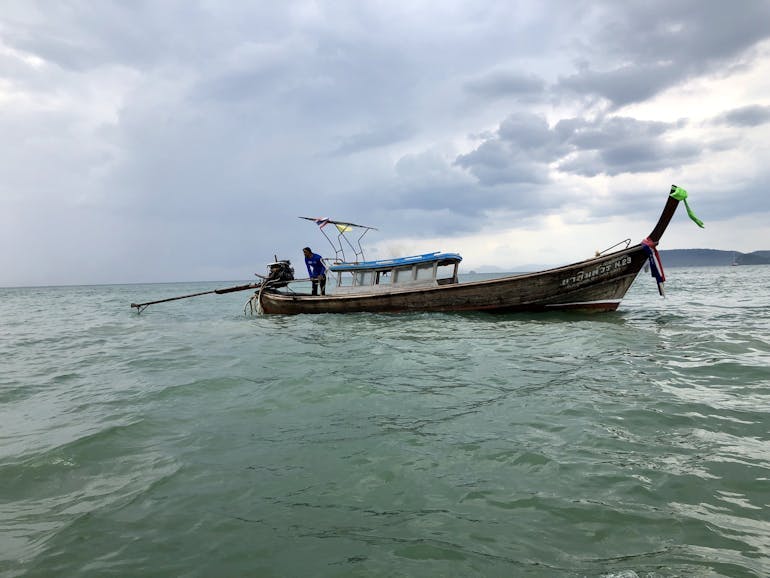
In Thailand, I realized the hypocrisy of it all. There I was, a liberal eco-friendly cyclist hippie using reusable cyclophane composting dirt soil to grow gardens back home, … and yet there we were riding a boat with a half-assed engine in the back spewing black smoke into the air. The entire bay was un-swimmable only because the “enlightened” insisted on coming here to have a getaway.
We contribute to the ruin of the majority of the world only to satisfy our own “exploratory” needs, and then come back to “civilization” and vomit out the importance of composting. Gimme a break. All of the composting you’ve ever done in your lives probably doesn’t offset the tuk-tuk rides you took in Thailand. Get off your high horse. You’re the problem, not the solution.
That said, as a traveler you shouldn’t treat sustainable tourism as a lost cause. If you are interested in understanding the local culture, making no footprint, observing peacefully, and demanding nothing but the right to do so, you’ll be ok.
YE: What are the main takeaways fellow cynics or skeptics should take from this?
Nick:
- Traveling is a privilege. And people with that privilege should try to reduce their impact as much as possible on the environment, communities, and economies.
- When you think about sustainable tourism, you’ll realize it’s full of oxymorons and conflicting ideals.
- Being a perfectly sustainable tourist is difficult to define because of the myriad tradeoffs between choices travelers need to make and the comforts a typical tourist wants to enjoy on vacation.
- Perhaps because of the complexity of the topic, it is more important than ever to mull over, research, discuss, and brainstorm how tourism can be more sustainable.
- There is never only one way to do things; urging people to do the ‘better’ thing when they travel is becoming increasingly relevant.
- Even the most cynical people should at least think about their actions when traveling. Otherwise, they are forgetting the very status in the world that enables them to continue traveling as such.
As mentioned at the beginning, sustainable tourism is wrought with complexities, and we don’t expect anyone to become a sustainable tourist overnight. We do sincerely hope that travelers familiarize themselves with the challenges and trade-offs that exist, as well as the actions individual travelers and tour operator companies can take.
We don’t believe that the answer is simply not to travel. Traveling and exploring is human nature; it brings joy, awareness of the world, human connection, exposure to other cultures, and so much more.
But perhaps we do owe it to ourselves and to future generations to travel more purposefully. This might mean taking fewer, but more meaningful trips; less air-travel trips and more slow-travel trips; or more nature-immersed or community-based trips.
However you proceed in your travels, we urge you to think about your actions and their ripple effects, and to support tour operators and travel companies that are propelling this conversation forward and trying to use tourism as a force for good.



